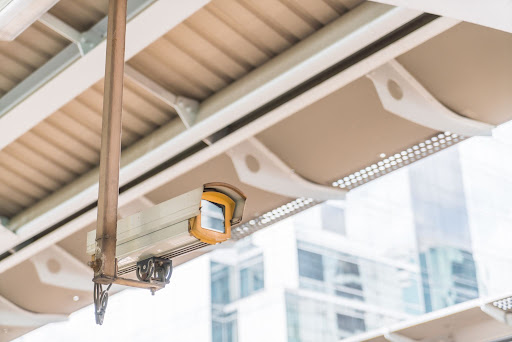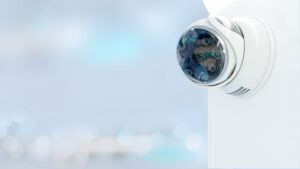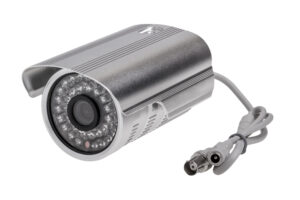Top Six Things To Consider When Choosing The Right CCTV Surveillance System
 September 28, 2021 Uncategorized 0 Comment
September 28, 2021 Uncategorized 0 Comment Since increased security has become a significant need nowadays, surveillance cameras are being installed in commercial, residential, and industrial structures. However, there is more to these devices than you may perceive. CCTV cameras are now being purchased by industries and businesses to track product movement and enhance production. Not only that but they are also being used to control traffic during large social gatherings and events.
With that being said, even if you do not need the most advanced CCTV camera, you will need a device that will cater to your needs. Furthermore, the following are the top things you should consider before purchasing a surveillance system:
Functional Considerations
Resolution: This is probably the most crucial element when looking for the right security camera. If your purpose is to monitor belongings and identify people, you would need to choose a device with reasonably high resolution. In this case, finding one with 1080p is the ideal option.
Motion sensors: CCTV cameras can also be motion-activated. This essentially means that the system will immediately alert you if you detect any movement. Some of these cameras are so advanced that they turn and follow individuals they detect. In return, it will help you save memory or storage space.
Night vision: Most smart cameras include night vision settings that turn on or off automatically depending on the amount of natural light it detects. The majority of cameras capture footage that looks like ordinary black-and-white films. Therefore, if you plan on monitoring relatively dark places, night vision is not enough. In this case, you will need sophisticated systems, like infrared or heat-vision cameras.
Coverage: On average, standard CCTV lenses can reach a distance of 35-40 ft. However, if you purchase those with special lenses, you can record footage covering up to 70 ft.
Connection: CCTV cameras can either be wired or wireless. Wireless security cameras have the benefit of being considerably easier to install, requiring only minimal drilling and mounting. On the other hand, the most significant benefit of a wired camera system is its dependability. With these types of cameras, you won’t need to worry about charging batteries and stable internet connections.
Location
The longevity and efficiency of CCTV systems are influenced by their location. Therefore, when choosing your surveillance camera, you consider whether you are going to install them inside or outside your home. Some locations where you can install your camera at the exterior of your home include your front door, garage, driveway, and backyard. For the interior of your home, you can mount them onto your hallway, corners of your room, and even entrances.
When installing them, you should aim to set them up on an angle that does not receive direct sunlight. Also, make sure that surrounding windows don’t affect the quality of your footage. Since PTZ cameras are great at capturing long distances, they are ideal for the outside. As for the inside, dome cameras can do a good job of monitoring your belongings and family members.
Audio
Yes, CCTV cameras can capture audio too. However, this feature will only become necessary depending on your established purpose. For example, two areas where audio is an important element of the CCTV system are at home and in the office. In most cases, including audio as part of the system is a personal preference.
Maintenance
Once installed, CCTV systems are quite simple to maintain. However, maintenance concerns must be considered because errors may occur in the system. Some aspects of the camera you should watch out for include the following:
- Camera lenses: You need to regularly check if the lenses are in the correct position, free of dust and marks, and if they are properly capturing the view you aim to monitor.
- Wiring: Inspect for loose and faulty wires in the system.
- Monitors: Verify that all of your switches and individual pieces of equipment are properly functional. Also, make sure to check to see if the monitors are clear and that the brightness and contrast settings are set appropriately.
Affordability
Just like most of the products in the market, the higher the price, the greater the features. The majority of budget-conscious customers go for cameras priced between $59 and $199. For the quality of these cameras, they can go up to 1080p HD. On the other hand, pricey cameras will have better quality, bigger storage, and more special features.
Added features
1. Rain resistance: Some cameras are better at managing rain than others. For this matter, it is ideal to look for a waterproof rating of 65 if your Internet Protocol (IP) camera will be totally exposed to the elements.
2. Adjustability: Fixed cameras focus on a single point, which may be sufficient for your needs. If you want to see a broader area, you should have a camera that can be panned, angled, and zoomed in for a better view.
3. Power source: The majority of security cameras simply connect into a regular socket, allowing them to be installed almost anywhere on your property. However, some are powered mainly by batteries.
4. Low light or infrared: Image intensifiers are used in these types of cameras to amplify extremely tiny quantities of visible light and produce a much brighter image with identifiable features.
5. Storage: Lastly, you should also consider how much footage your system can take. Storage solutions usually demand a monthly or yearly cost and restrict the quantity of video you can store. However, you can periodically unload film from your cloud account to a local disk or another cloud storage provider if you don’t want it to be lost permanently.


